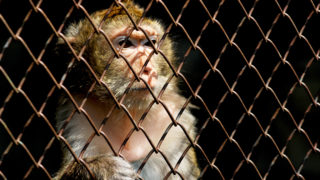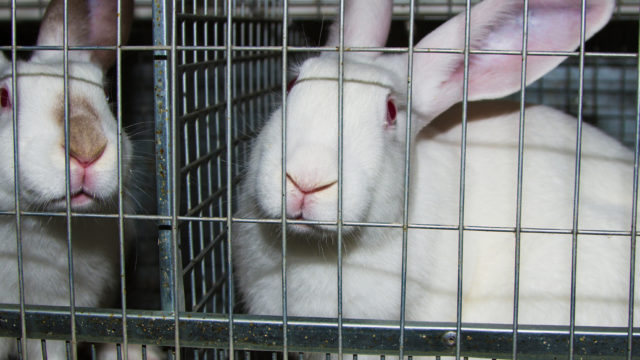
UW-Madison’s Censorship of Speech Criticizing Testing on Animals on Its Social Media Accounts is Unconstitutional
The Seventh Circuit Court of Appeals overturns a lower court’s dismissal of the case, finding the public university suppressed free speech
Contact: media@aldf.org
WASHINGTON — The Seventh Circuit Court of Appeals ruled that the University of Wisconsin-Madison’s use of keyword blocking, which targets comments critical of the university’s sordid history of animal testing, violates the First Amendment. The decision comes after a lower court dismissed a lawsuit filed in February 2021 by the Animal Legal Defense Fund (ALDF) on behalf of Madeline Krasno, a former employee of the University’s controversial primate research labs. ALDF and Krasno challenged the university’s censorship of her truthful comments about animal research on the university’s otherwise public Instagram and Facebook pages.
In May 2022, ALDF filed a motion for summary judgment seeking to end the censorship of Krasno, based in part on evidence provided by the university that demonstrated a concerted effort to silence criticism of its animal testing program. Documents produced during discovery revealed lists of automatically censored words and phrases for its Facebook and Instagram pages, for instance, hiding all comments that included the following keywords: animal laboratories, testing on animals, primates, monkeys, cruelty, research animals, testing, kill animals, and torture.
“The Seventh Circuit Court of Appeals reversal of the lower court’s decision marks a major victory for free speech and transparency surrounding controversial primate research at the University of Wisconsin-Madison,” said Caitlin Foley, senior staff attorney at ALDF. “The university censoring the speech of a former primate caregiver is not only unconstitutional but diminishes the public’s visibility into publicly funded research where animals are suffering in experiments with questionable benefit to human health.”
“After a similar result against the National Institutes of Health, this decision marks the second successful challenge against public institutions silencing those who dare to question the ethics of animal research,” says Krasno. “I’ve received so many messages from others who’ve worked in labs — people who saw their own pain reflected in my stories — and it’s important they understand their stories matter too. I appreciate ALDF for representing me in the lawsuit and everyone who has encouraged me to speak out.”
As an animal lover, Krasno was inspired to study zoology at the University of Wisconsin, with the goal of working in the field of primate conservation. Seeking hands-on experience with primates, she worked as a student caretaker for primates at the school’s Harlow Center for Biological Psychology for approximately two years — an experience that exposed her to the harsh realities of animal testing.
In addition to the blocked words, the lawsuit uncovered evidence of disturbing and blatantly discriminatory censorship practices. The university admitted that it intentionally censored words to hide comments made in connection with animal protection campaigns, such as “Cornelius,” a reference to online campaigns focused on the release of a primate held by the university in a testing facility. The university admitted that its comment moderation is inconsistent and that there is no process to ensure regular oversight of moderation decisions such as blocking users and censoring new words. Documents further revealed that university staff monitored Krasno’s social media account and discussed creating fake profiles to covertly attend one of her presentations.
While working with primates at the facility Krasno witnessed the victims of the university’s extensive animal testing. Krasno viewed firsthand a monkey who’d been subjected to an invasive cranial procedure that left an opening in his skull that was covered with a so-called “headcap,” who shook his cage bars and reached out his hands to grab in vain at passing humans. She witnessed a mother monkey and her newborn who screamed as they were separated so the newborn could be tattooed, an infant monkey who died in Krasno’s hands during a seizure, and a mother monkey who clutched her dead newborn for more than a full day until Krasno and a coworker were directed to separate her from the baby — a distressing experience that ended with the mother pressing her lips to the baby’s head before retreating alone into a transport cage. Her reactions to the experiences she had at the facility led Krasno to a later diagnosis of post-traumatic stress disorder.
ALDF and Krasno are further represented in this case by Joseph S. Goode and Mark M. Leitner of Laffey, Leitner & Goode LLC in Milwaukee, Wisconsin.
Sign Up!
Join the Animal Legal Defense Fund's email list to stay up to date on lawsuits, legislation, and regulations affecting animals.
Focus Area
How We Work
Related
-
FDA Seeks to Phase Out Animal Testing for Certain Medical Drugs
The Animal Legal Defense Fund continues to advocate for animals suffering in research labsMay 5, 2025 News


